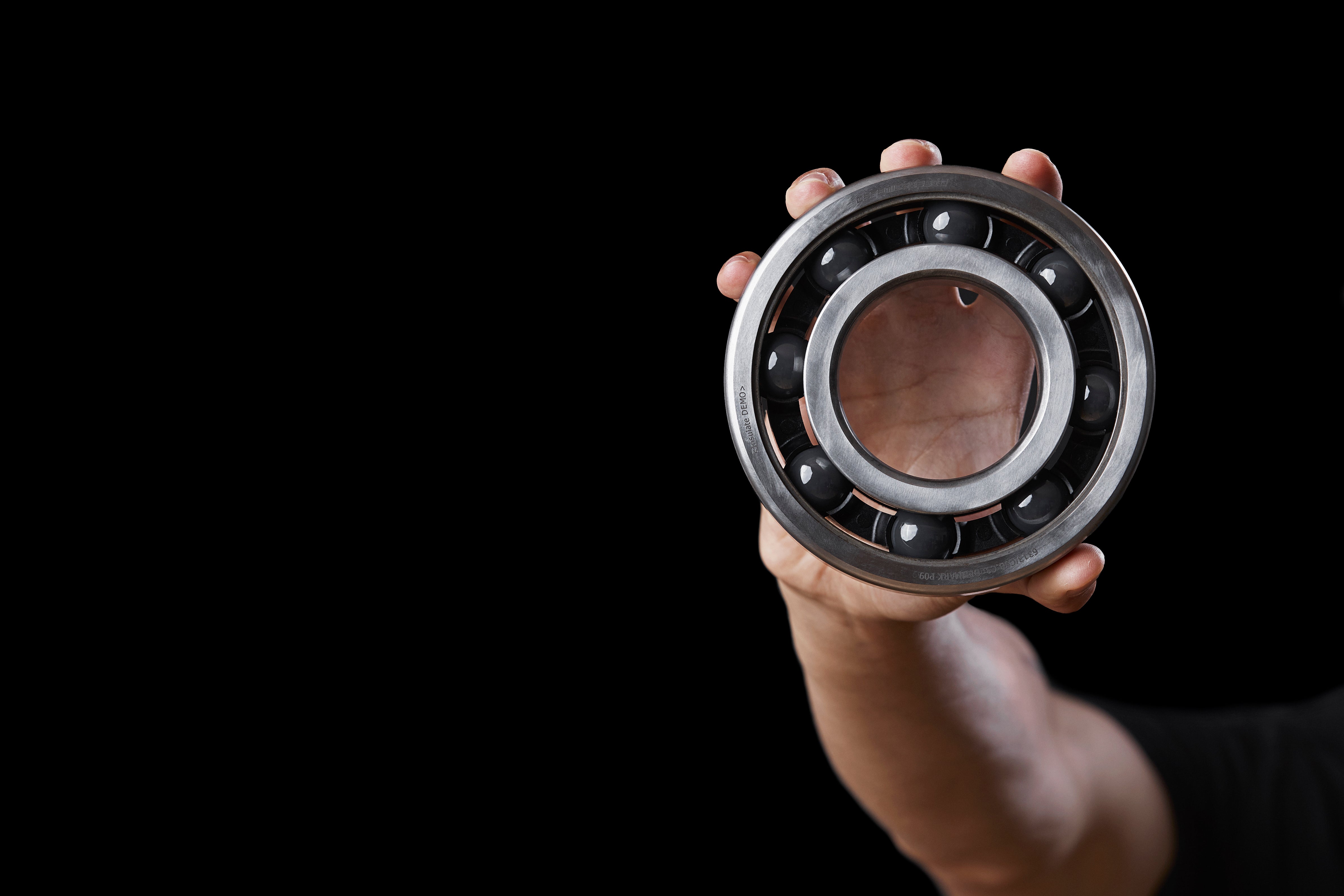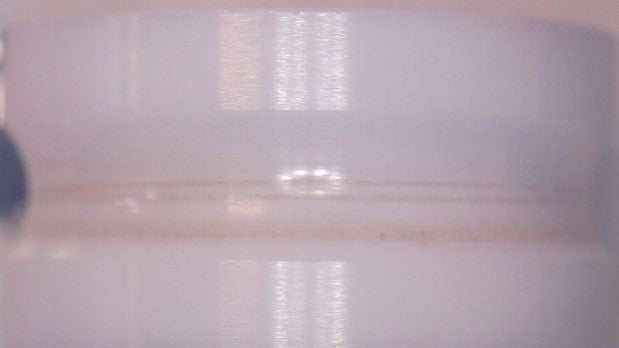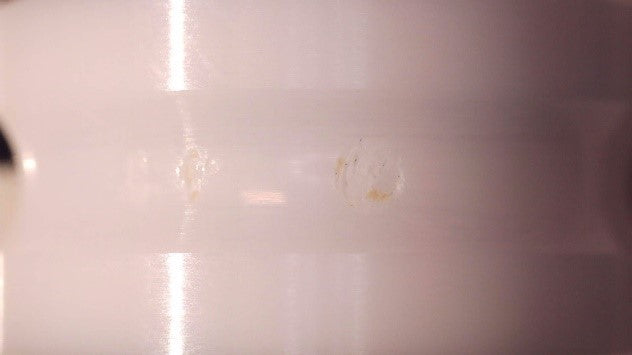A Breakthrough for Sensitive and Harsh Environments
As the demand for ball bearings that can run dry - without oil or grease - continues to grow across various industries. Manufacturers face increasing pressure to meet these unique requirements. This trend is driven by a combination of factors, such as the risk of contamination in sensitive products or the need for bearings that can withstand environments of hostile and organic materials.
Industries such as food production, pharmaceuticals, packaging, and petrochemicals are particularly concerned with contamination risks and the need for corrosion-resistant solutions. Traditionally, these industries have had limited reliable options when seeking bearings capable of dry operation. At CeramicSpeed, we have recently conducted a series of tests to explore how our hybrid and full-ceramic bearings perform under dry-running conditions, providing a solution that meets the stringent demands of these sectors.
Test Conditions
To ensure consistent results, we designed a straightforward test setup using a pair of deep groove ball bearings (DGBB’s) for each test:
- Bearings: DGBB’s 6202 (one test with 61812)
- Load: Constant radial load (C/P = 21)
- Speed: 300 rpm and 1500 rpm (higher speeds for accelerated testing)
- Environment: Indoor, normal cleanliness, room temperature (20ºC ± 3ºC)
- Monitoring: Bearing temperature and vibration
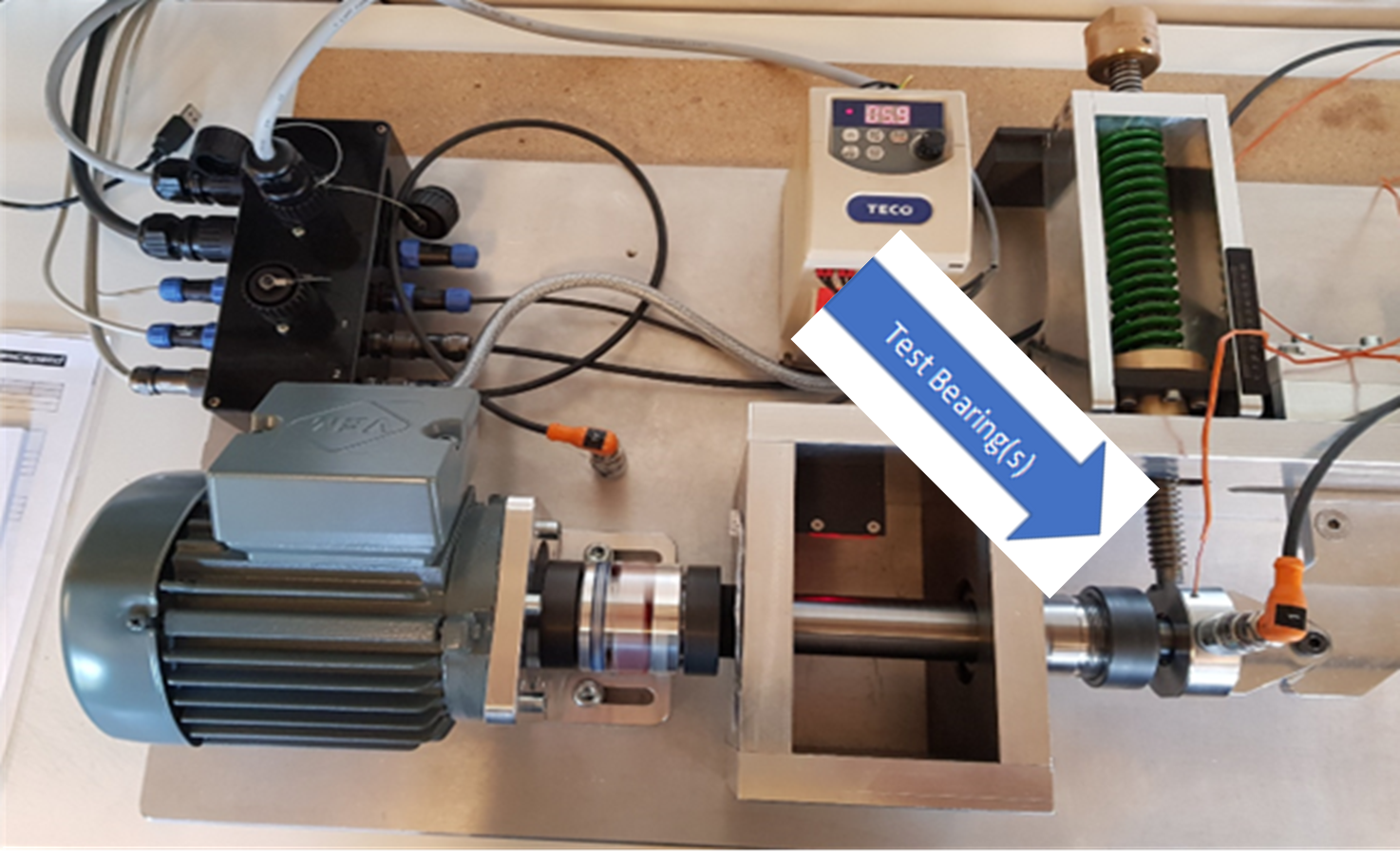
Figure 1: Test Rig
Material Combinations Tested
In industries such as food production and pharmaceuticals, the choice of bearing materials plays a critical role in ensuring safety, performance, and durability. Due to the strict demands for corrosion-resistant solutions, CeramicSpeed has prioritized using advanced materials and innovative combinations that meet these needs.
| Test # | Bearing Rings | Balls | Ball Cage
|
Coating (rings) |
| 1 | AISI 440C | Si3N4 | Sheet Metal | - |
| 2 | 100Cr6 | Si3N4
|
PEEK | TDC |
| 3 | AISI 440C | Si3N4
|
Sheet Metal | SlipCoat |
| 4 | ZrO2 | Si3N4
|
PEEK | - |
| 5 | ZrO2 | Si3N4
|
PEEK | SlipCoat |
Ring Materials
The industry standard bearing steel, 100Cr6, while highly durable, does not offer sufficient corrosion resistance on its own. To enhance its suitability for the food and pharma sectors, we have applied a corrosion-resistant coating, TDC (thin dense chrome), which significantly improves its performance in harsh environments. However, AISI 440C has emerged as the dominant material for corrosion-resistant ball bearings and ZrO2 (Zirconia) represents the somewhat exotic choice as a ceramic alternative to the classic steel rings.
Balls
Throughout our tests, we exclusively used Si3N4 (silicon nitride) balls, renowned for their high strength, low density, and superior resistance to wear and corrosion. All balls used were from class 1 material, adhering to ASTM F2094 standards, ensuring the highest quality and consistency in performance across applications.
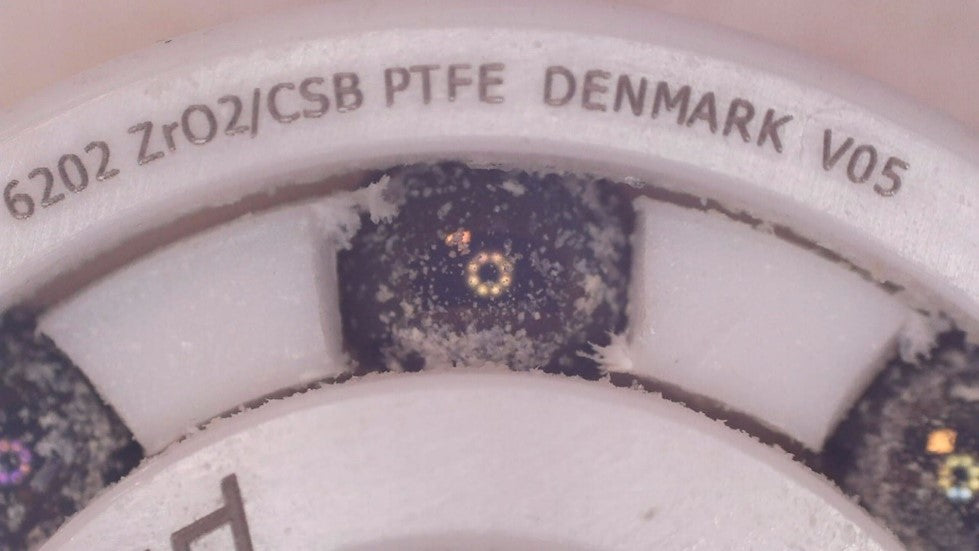
Figure 2: Failed PTFE cage
Ball Cages
Various cage materials were evaluated during testing, including sheet metal, PTFE, and PEEK. Both PEEK and sheet metal cages demonstrated excellent performance providing reliable results. However, PTFE cages, despite their reputation for having “self-lubricating” properties, failed to meet the same standards. During our testing, the PTFE cages disintegrated early, indicating that they are not suitable for applications requiring high endurance or dry running conditions.
Coatings: A Comparative Analysis
In our testing program, we evaluated two coatings: the commercially available Thin Dense Chrome (TDC) from Armoloy and our in-house proprietary SlipCoat technology. Each coating offers distinct benefits, suited for specific industrial needs.
SlipCoat Technology
SlipCoat is what we describe as a "soft coating," functioning as an ultra-thin lubrication film applied in liquid form. This film chemically bonds to the bearing's functional surfaces, creating a clean, leak-free bearing that still maintains a degree of tribological protection. Notably, SlipCoat is FDA-compliant and has recently passed the German LABS test, proving it suitable for large-scale automotive paint shops, where cleanliness and durability are critical.
Thin Dense Chrome (TDC) Coating
TDC, from Armoloy, is a well-known solution consisting of 98% pure chrome applied via a high-energy bath, making it compatible with most metals. It provides excellent corrosion
resistance, combined with an impressive surface hardness in the range of 75 to 78 HRC. TDC has a proven track record across various industries where both hardness and corrosion protection are essential.
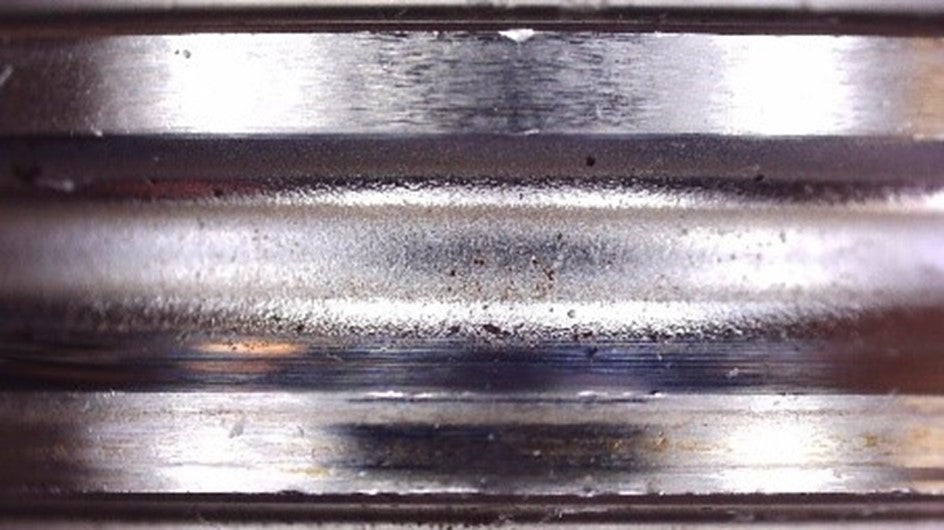
Test Results
Disclaimer
While the results presented here are insightful, we recognize that they are based on a limited test pool, with only two bearings tested in each configuration. The aim of this study is to provide an initial indication of performance trends, and we encourage readers to interpret the results in that context.
Figure 3: AISI 440C with visible abrasive wear
Uncoated AISI 440C Rings
As expected, unprotected AISI 440C rings showed rapid wear in testing. After just over 40 hours, visible abrasive wear in the raceways led to increased vibrations, ultimately halting the test. This demonstrates the importance of protective coatings for prolonging the life of bearings in harsh environments.
TDC-Coated 100Cr6 Rings
In our tests, the 100Cr6 rings coated with Armoloy’s TDC performed impressively, lasting over 2000 hours before failure. However, a downside of the TDC coating became apparent over time, as it gradually wore down and produced a black, powdery residue. This type of contamination is typically unacceptable for industries like food, pharmaceuticals, and others where cleanliness is critical, highlighting a limitation of this otherwise durable coating.
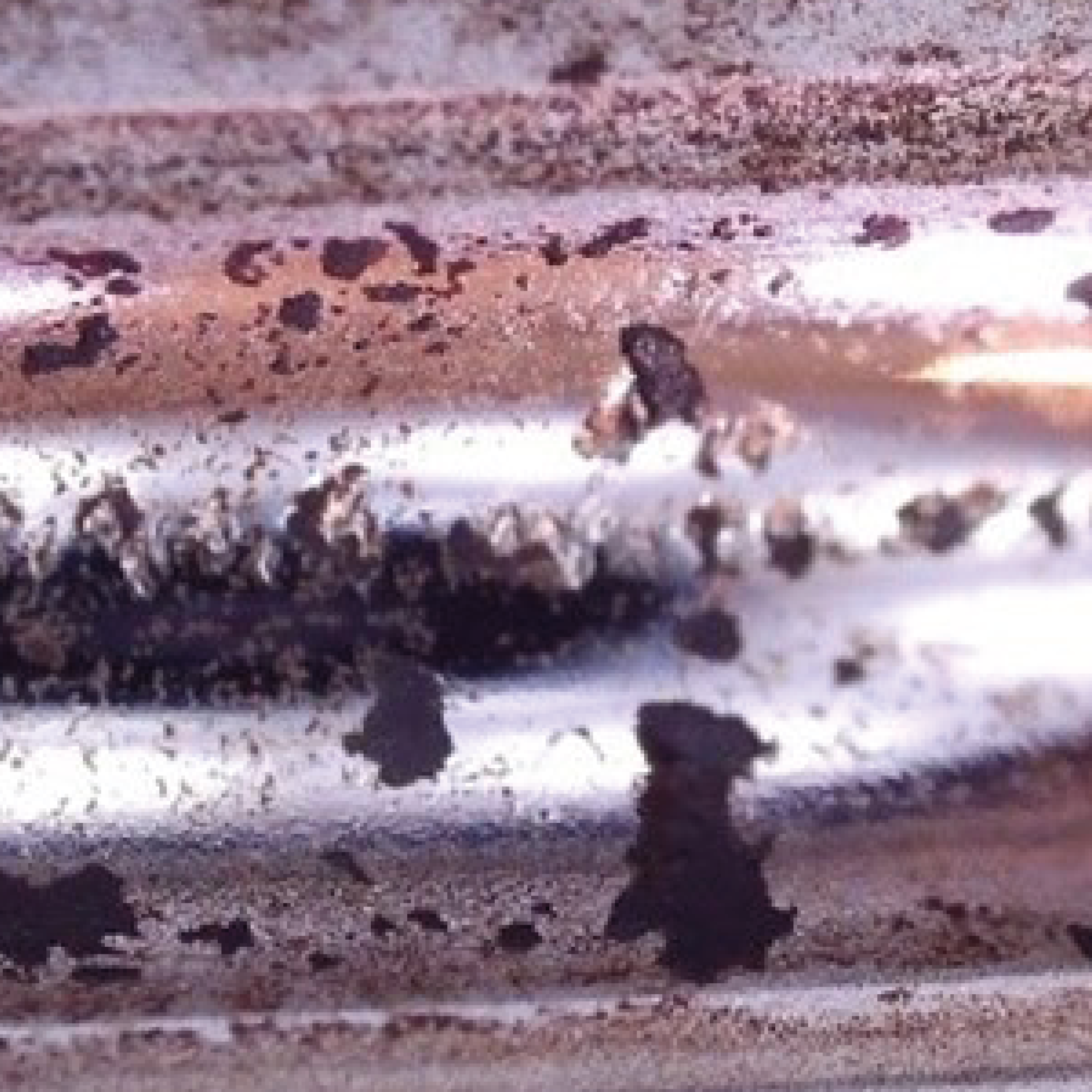
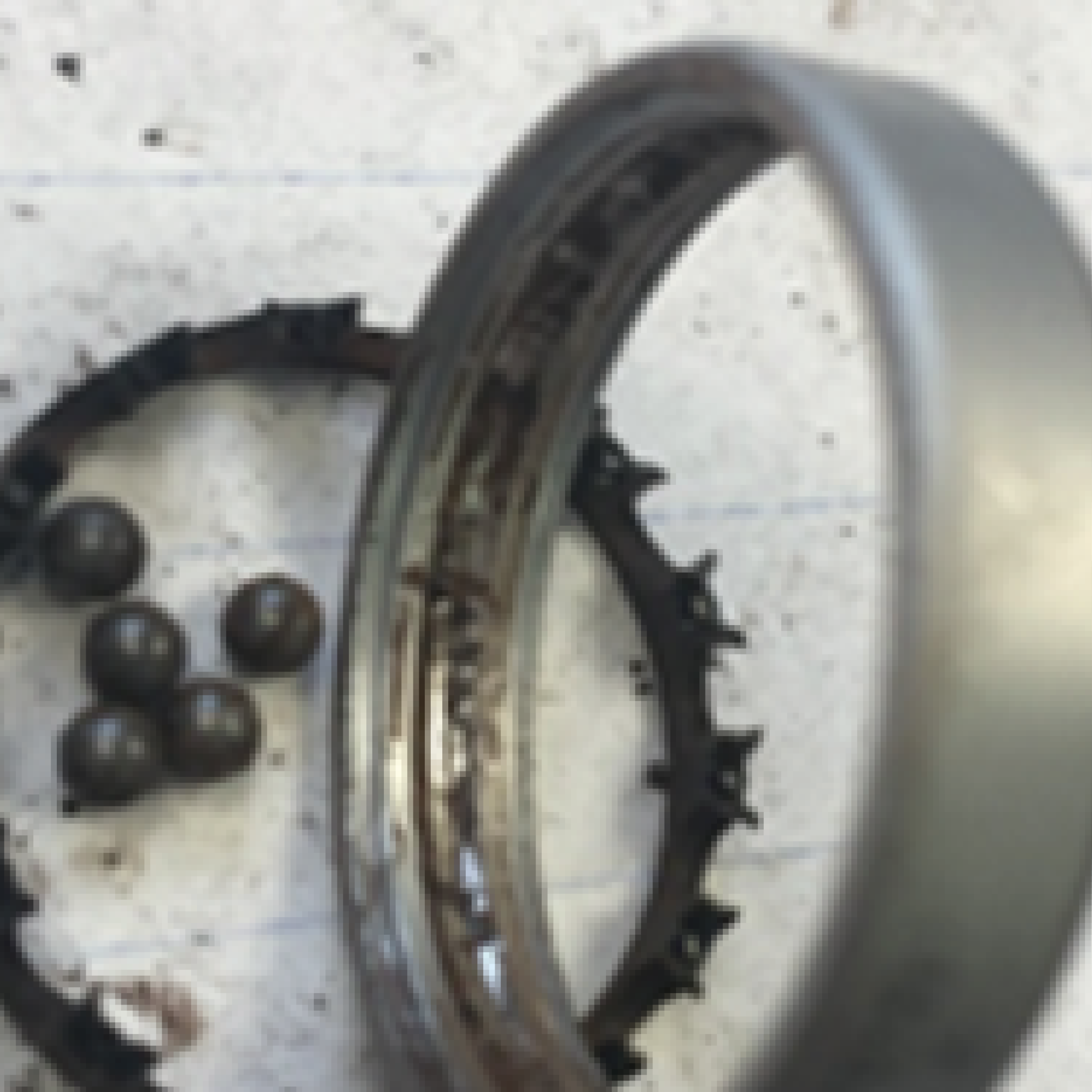
Figure 4-5: TDC-coated rings failing due to degradation of the surface coating. Powder residue is clearly visible on the rings
Ceramic (ZrO2) Rings
The uncoated ceramic ZrO2 rings performed significantly better than the unprotected stainless steel rings, though they did not match the performance of the TDC-coated rings. The ceramic rings lasted just over 200 hours before failure. Early in the testing, the rings exhibited light surface wear and discoloration, but this rapidly escalated to severe spalling damage, ultimately leading to failure. Despite their improved durability over stainless steel, the lack of additional protection limits their bearing life in demanding environments.
Figure 6-7: ZrO2 rings rings failing with surface wear and finally spalling
SlipCoat Surface Treatment
Our proprietary SlipCoat technology was tested on both stainless steel (AISI 440C) and ceramic (ZrO2) rings, with remarkable improvements in performance. The ceramic rings, when treated with SlipCoat, lasted 14 times longer than their untreated counterparts. For the steel rings, the test was stopped after 6000 hours with no visible damage - raceways appeared as new and could have continued running far beyond this point.
Post-Test Insights - AISI 440C & SlipCoat
These promising laboratory results have since been confirmed through field testing with a major European OEM in the food and beverage industry, validating the effectiveness of SlipCoat in real-world applications.
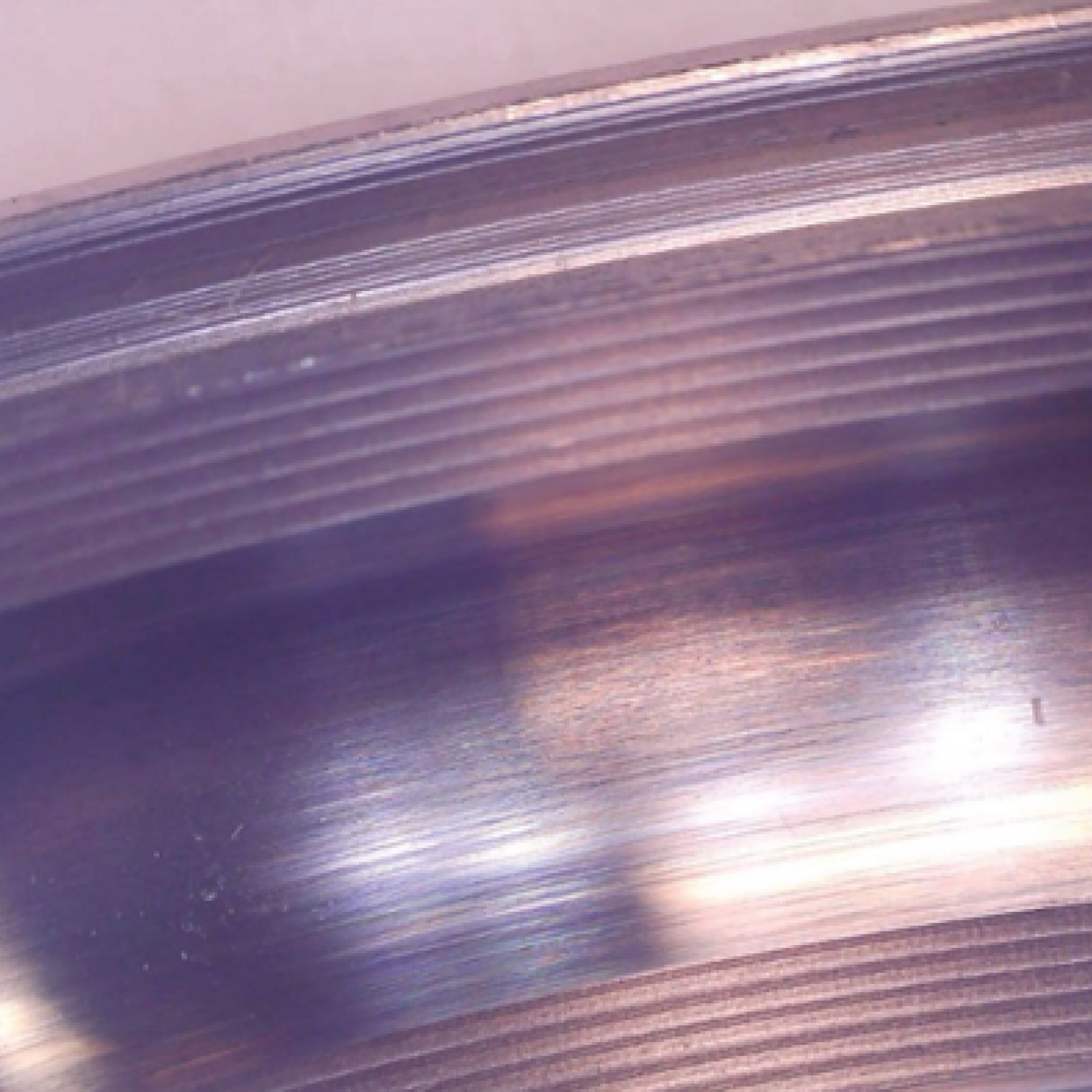
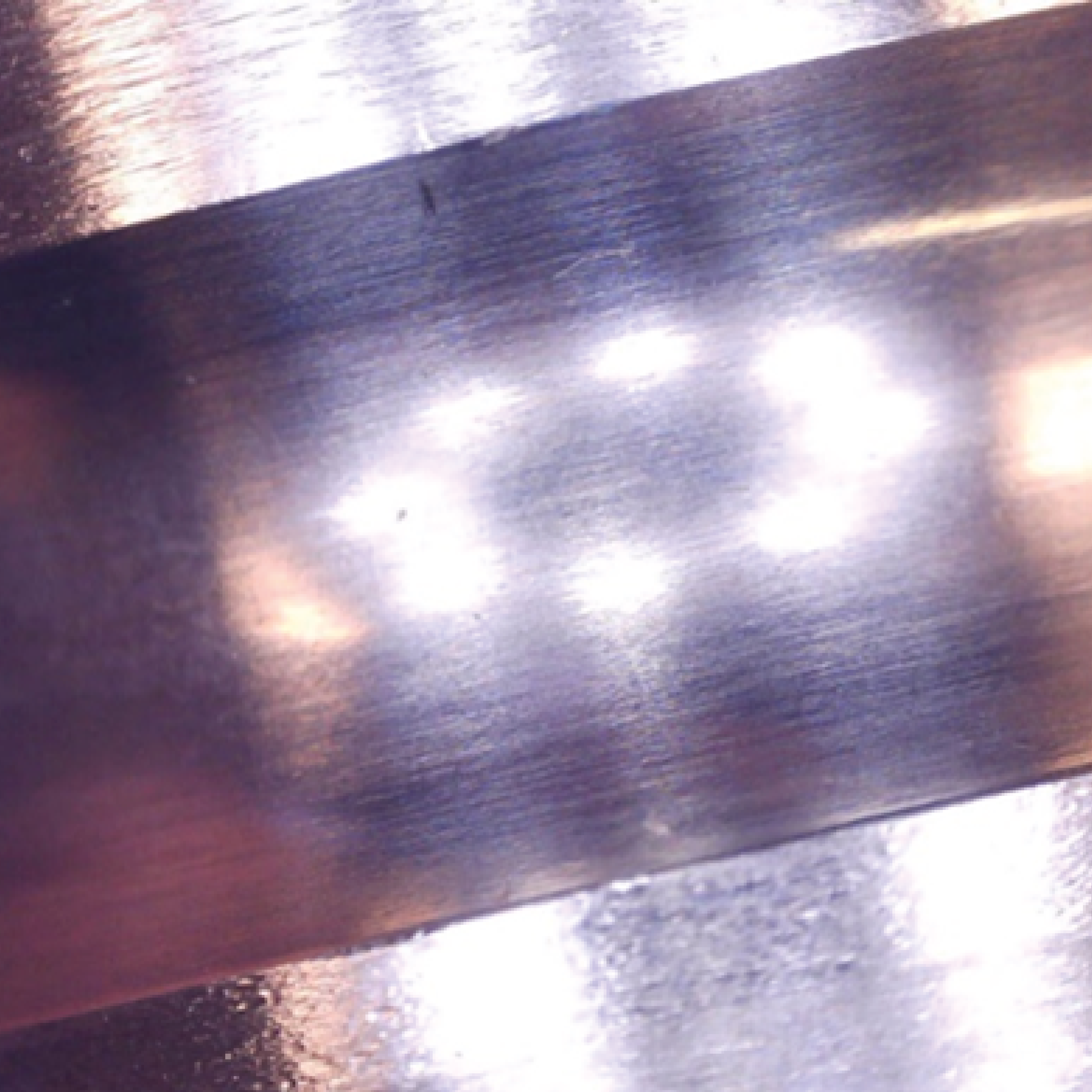
Figure 8-9: AISI 440C rings looking like new after 6000 hours with SlipCoat
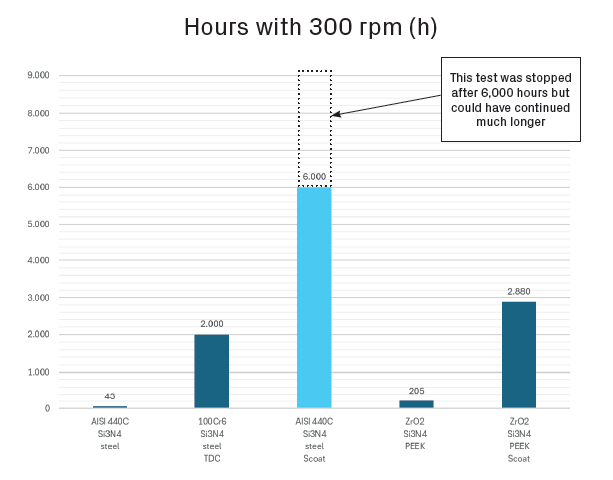
Conclusions
Operating ball bearings without oil or grease is never ideal for their performance, but with the right combination of materials, significant improvements can still be achieved compared to traditional steel bearings. Full-ceramic bearings offer some advantages over standard options, but these have been clearly outperformed by SlipCoat-treated steel rings. When considering the common drawbacks of ceramic rings, such as higher cost, lower load capacity, and limited availability, many strong arguments favor hybrid bearings with steel rings and ceramic balls. The CeramicSpeed SlipCoat technology has exceeded our expectations, demonstrating
performance that surpasses even what we hoped for in initial testing. We believe that the combination of SlipCoat-treated steel rings and ceramic balls may represent the strongest solution available for industries where lubrication with oil or grease is not possible.

Reach out to us
For more information please feel free to contact our Managing Director Anders Thormann
Write to Anders here
Download PDF
Download the entire test here